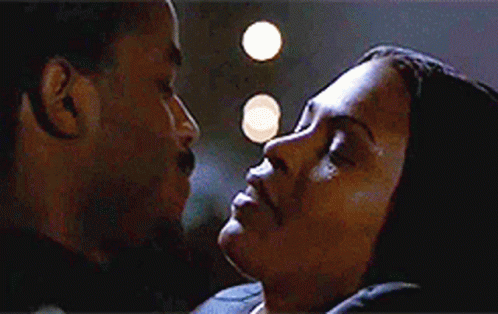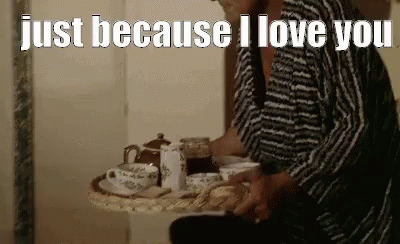TW: Suicide
“Because only white people suffer from depression. Only white people commit suicide. Black women are strong. Black women are not human. And this is a LIE.” -Christelyn Karazin
Karyn Washington was definitely a young black woman with a mission. Creator of the online project For Brown Girls, the 22 year old’s goal as a dark skinned woman was to create a safe space for other dark skinned women to feel confident in their skin tone while living in a society that categorizes the dark skin as unattractive. She created daily blog posts and photographs that would spread happiness, pride, and self-confidence to viewers in attempts to have them feel more confident in their complexion. Another project she created, #DarkSkinRedLip, quickly became a social media movement against rapper A$AP Rocky’s comments about dark skinned women “not being able to rock” to red lipstick. Attracting young and matured aged followers from all over the globe, the Morgan State University graduate was becoming a game changer within the blogging world, uplifting African American woman and slowly even becoming a hero to some of her followers.
However, in the midst of all of her success, there was an issue bubbling deep inside that no one else could see. A desperation for help and support that she had refused to show to her followers. A battle that she, unfortunately, could not fight herself.
On April 4th, 2014, Karyn Washington was found dead in her home. Her cause of death: Suicide.
The death initially shocked the blogging world and left fans in a state of confusion. How could a young black woman whose sole mission was to uplift and bring happiness to other women, kill herself? How could a woman who seemed to have it all together, end her own life?
Unfortunately, Karyn was going through a situation many black woman experience. Feeling she had a duty to better her surrounding community, Karyn put her time, heart, and energy into her work. Her projects exuded self-confidence and pride, and her wisdom made it seem as if she had life all together. The outer persona of Karyn Washington quickly took over who she really was, and became a mask for her to wear. While she may have appeared as a powerful community orientated women, behind closed doors Ms. Washington was fighting a serious battle against depression and other mental disorders. So while she spent her time catering to the well-being of others, she never truly gave the time to cater to herself or to let others know she was in pain as well. Upholding the new image of being a hero to younger and older women from her blog site, there was no time for her to feel vulnerable. Karyn had to keep it all together…..but sadly keeping it all together become one of the main reasons for her passing.
As black women we are constantly told that we are and should continue to be emotionally resilient: capable of handling any obstacle we face. We should always walk with our heads held high, exude confidence and assertion while never appearing weak to the public eye.
Although the superwoman image was created with intentions of being uplifting, the portrayal of a whole racial gendered community as undefeatable and subhuman does more harm than good. In fact, the outer appearance of being strong, dedicated, and put together is resulting in the women of our communities fearing the possibility of vulnerability and is contributing to the overall epidemic of hiding their mental disorders and emotional distresses. The U.S. Department of Health and Human Services Office of Minority Health has reported that approximately African Americans are 20% more likely to report suffering from a psychological disorder in comparison the white community. Ironically however, they are less likely to receive treatment or help for their distresses, especially if they are college educated. The concept of handling problems on their own is causing the black community, particularly black women to believe that treatment for their disorders is not necessary, and causes them to believe that the disorder as a whole is simply “the blues” instead of a dangerous emotional problem.
The black superwoman complex is not the same uplifting stereotype that we have all been raised to believe. Instead, the stereotype is a dehumanizing, sub-human expectation that is destroying the health, self-esteem and sanity of black women every day. Being told to “hold it together” while putting aside our own physical, mental, and emotional needs is not helping us defeat our problems, but is hurting us instead. Awareness of the possible mental illnesses black women can experience throughout their lifetime from upholding this belief as well as space being open for black women to finally come forward with their pain can possibly erase this social expectation for black women once and for all.
Black Superwoman Complex: Why is it Here?
One of the many reasons as to why the black superwoman complex is existent within our community is due to the negative perception of black women not being capable enough to succeed in this world or worthy enough of respect. As stated earlier the black superwoman stereotype was initially rooted as an uplifting characteristic to combat the highly negative stereotypes that at one time defined black women as a whole. Historically, black women have been seen as either hypersexual beings who lacked the possibility of being raped or romantically respected (Jezebel), or the powerless, submissive servant that worked and cleaned after others while holding no systematic power (Mammy). The prior stereotypes are of course false and are not an accurate description of black women. However, having prevalence since slavery, these harming assumptions of black women have followed us for centuries and caused great harm to our physical and mental well-beings. As a response to the negative cogitations, the black community took matters into their own hands to created a new, uplifting image that embodied black women as strong women who do not accept defeat. The painting of black women as being almost undefeatable, assertive, powerful, etc., was an attempt to erase the oppressive and degrading images of black women created by racist groups around the world. Unfortunately, overtime this image lost its value and instead has become an emotionally and mentally damaging image for women instead of an uplifting one. Now, instead of black women feeling as if they are allowed to be vulnerable, they are in the permanent mindset to appear as if everything is okay and handled on the surface, when in actuality deep inside they are fighting a battle that is hidden from the world to avoid the perception of weakness.
There has also been a stigma within our community that the concept of mental illness is nonexistent. African Americans who are suffering from mental disorders are seen as weak or “lacking willpower,” for mental illness is a “white issue” that we as a community don’t deal with. Black people who are currently going through mental issues may feel they are strange, sub-human, or “being punished by God,” when in actuality they are just regular human beings who may need just a bit of help during a difficult time. These views contribute to the silencing of black people currently experiencing mental disorders, and contributes to the overall need for black women to act as if everything is okay and nothing can ever be too much when behind closed doors they are unknowingly battling a disorder while dismissing it as “the blues.”
What Are the Emotional and Psychological Effects of the Superwoman Complex?
“The desire to be ‘strong’ was found to factor into levels of selflessness, powerlessness, and self-silencing that contributed to the psychological distress and heightened risk for depression” – Beauboeuf Lafontant
In terms of emotion, loneliness and disappointment are just some of the common negative moods found within women who are desperately trying to uphold the image of the black superwoman. Loneliness becomes existent from walking throughout the world with a persona that they can handle any issue or responsibility coming in their direction, for doing so makes them seem to others that they are perfectly fine with no underlining issues. Portrayal of oneself having everything together as well as exuding false confidence can unfortunately cause peers and families members to detect that nothing is wrong with the women, resulting in failure to realize that they’re hurting inside. Because no one will be able to tell if she is suffering due to her outward assurance that life is okay or that she is strong enough to handle everything, the woman will continue to feel as if no one understands, cares, or truly gets her. Disappointment may also be another emotional issue that occurs within black women due to not being able to complete or accomplish all that they are “supposed" to do. A part of the stereotype is to take on numerous of responsibilities at once and to complete them with grace and without failure. Failing to complete a certain task, or to finish them with what they feel is a "lack a substance" has the possibility of creating an overwhelming feeling of disappointment within oneself.
Depression is one of the most common mental disorders correlating with the discussion of the black superwoman. Heightened levels of stress from taking on too many responsibilities at once, feelings of not being understood by the public, as well as the feeling of being alone when no one else is around can eventually take a major toll on the mental state of the black woman. Taking numerous of activities, responsibilities, etc., while portraying an image of happiness and strength does nothing but cover up negative emotions, allowing them to boil under the surface until it becomes too much to bear. Women may begin to feel sluggish, lose interest in the things that once excited them, and begin to cry behind closed doors often before coming back outside with the superhero mask. Depending on the severity of the disorder, some woman may begin to believe their life has no purpose, constantly experience suicidal thoughts, and like Karyn Washington attempt or successfully take their own life.
Women who try to uphold this stereotype to the best of their abilities believe having anyone know or detect their emotional or psychological problems will result in them being exposed as weak or helpless. Due to this, large amounts of black women end up suffering with emotional and mental disorders in silence with no form of treatment.
Destroying the Complex
So now that we are aware of how damaging this image is, the question remains; what can we do about it? How can we allow ourselves to let our guards down and take better care of our emotional health? In my response, in order to combat this complex, we must accept negative emotions as they are. By saying this I am implying that we must allow ourselves to feel vulnerable once in a while; being open to feelings of sadness, weakness, and failure. While we have been conditioned to believe that being seen as any of the prior is unacceptable, it is important to understand that negative emotions are simply apart of life. These feelings are what make us human, and they shouldn't be ignored or hidden. To allow yourself to admit that you are not well or don’t have everything under control takes an enormous amount of strength that no one gives credit for, and is definitely healing as you are slowing taking heavy bricks off your chest. In order to combat these issues and free yourself from the negative effects of the black superwoman syndrome, I have created seven essential tips to be enforced into your everyday life.
My suggestions for breaking the Black Superwoman Complex are as follows:
1. Allow yourself to be vulnerable.
2. Understand that in life you will never have everything together. And that is okay.
3. Make sure to practice self-care. Take time to cater to yourself.
4. Talk to people you trust when negative emotions begin to surface. Try your best to not harvest these emotions until they become too much to handle.
5. Recognize that no one is perfect, no matter how great or put together their life appears.
6. Take things one step at a time. Do not feel pressured into taking on more than you can handle.
7. If you are currently experiencing serious emotional discomfort, please do not feel afraid to see a counselor. People do not have to know you are getting help if you don’t want others to know your business, however it is imperative to seek professional help so your healing process may finally begin.
In conclusion, the black superwoman is doing more bad for black woman than good. With the realization that one doesn't have to maintain this false image of strength, power, confidence and control, the mental and emotional state of black woman will be in a better place.










